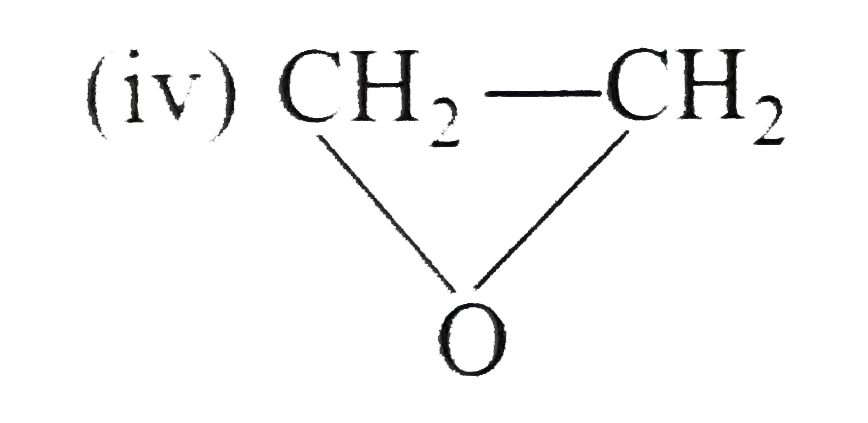Strongest nucleophile is
RNH2
ROH
C6H5O−
CH3O−
The correct Answer is:D
To determine the strongest nucleophile, we need to understand what a nucleophile is and the factors that influence nucleophilicity.
1. Definition of Nucleophile:
A nucleophile is a species that donates an electron pair to form a chemical bond in a reaction. Nucleophiles are typically negatively charged or neutral molecules with lone pairs of electrons.
2. Factors Affecting Nucleophilicity:
Several factors influence the strength of a nucleophile:
- Charge: Negatively charged species are generally stronger nucleophiles than their neutral counterparts.
- Electronegativity: Less electronegative atoms are better nucleophiles because they hold onto their electrons less tightly.
- Solvent Effects: In polar protic solvents, nucleophilicity decreases with increasing size due to solvation effects. In polar aprotic solvents, larger nucleophiles are stronger because they are less solvated.
3. Comparison of Common Nucleophiles:
Common nucleophiles include:
- OH− (hydroxide)
- CH3O− (methoxide)
- I− (iodide)
- Br− (bromide)
- Cl− (chloride)
4. Identifying the Strongest Nucleophile:
Among the common nucleophiles, CH3O− (methoxide) is often cited as one of the strongest nucleophiles due to its negative charge and the presence of a lone pair of electrons on the oxygen atom. However, in some contexts, Cs3O− (cesium oxide) is mentioned as the strongest nucleophile because of the larger size of cesium, which makes the negative charge more available for donation.
5. Conclusion:
Therefore, based on the information provided and the factors influencing nucleophilicity, Cs3O− is considered one of the strongest nucleophiles.
Final Answer:
The strongest nucleophile is Cs3O− (cesium oxide).
A nucleophile is a species that donates an electron pair to form a chemical bond in a reaction. Nucleophiles are typically negatively charged or neutral molecules with lone pairs of electrons.
Several factors influence the strength of a nucleophile:
- Charge: Negatively charged species are generally stronger nucleophiles than their neutral counterparts.
- Electronegativity: Less electronegative atoms are better nucleophiles because they hold onto their electrons less tightly.
- Solvent Effects: In polar protic solvents, nucleophilicity decreases with increasing size due to solvation effects. In polar aprotic solvents, larger nucleophiles are stronger because they are less solvated.
Common nucleophiles include:
- OH− (hydroxide)
- CH3O− (methoxide)
- I− (iodide)
- Br− (bromide)
- Cl− (chloride)
Among the common nucleophiles, CH3O− (methoxide) is often cited as one of the strongest nucleophiles due to its negative charge and the presence of a lone pair of electrons on the oxygen atom. However, in some contexts, Cs3O− (cesium oxide) is mentioned as the strongest nucleophile because of the larger size of cesium, which makes the negative charge more available for donation.
Therefore, based on the information provided and the factors influencing nucleophilicity, Cs3O− is considered one of the strongest nucleophiles.
The strongest nucleophile is Cs3O− (cesium oxide).
Topper's Solved these Questions
- BOOK - ERRORLESSCHAPTER - GENERAL ORGANIC CHEMISTRY EXERCISE - NCERT BASED QUESTIONS (Organic Reactions and their Mechanism )46videos
GENERAL ORGANIC CHEMISTRY
- BOOK - ERRORLESSCHAPTER - GENERAL ORGANIC CHEMISTRY EXERCISE - NCERT BASED QUESTIONS (Structural and Stereo Isomerism )99videos
GENERAL ORGANIC CHEMISTRY
- BOOK - ERRORLESSCHAPTER - GENERAL ORGANIC CHEMISTRY EXERCISE - ASSERTION AND REASON14videos
GENERAL ORGANIC CHEMISTRY
- BOOK - ERRORLESSCHAPTER - ENVIRONMENTAL CHEMISTRYEXERCISE - ASSERTION & REASON7videos
ENVIRONMENTAL CHEMISTRY
- BOOK - ERRORLESSCHAPTER - HYDROCARBONSEXERCISE - ASSERTION & REASON18videos
HYDROCARBONS
Similar Questions
(a) List the following species in order or decreasing nucleophilicity in aqueous medium.

(b) Indicate which of the following solvent is protic or aprotic . ,

(C) Identify the strongest nucleophile in each pair of anions.
(i) BrΘ and CIΘ in H2O(ii).ΘSH and FΘ in CH3OH
(iii),ΘOH and CIΘ in DMFView SolutionA nucleophile is:
View Solution
Knowledge Check
- Question 1 - Select One
Strongest nucleophile in polar-protic solvent is
ACH3O−BCH3SHCCH3−S−DCH3OH - Question 2 - Select One
Among the following the strongest nucleophilic is
AC2H5SHBCH3COO−CCH3NH2DNCCH−2 - Question 3 - Select One
Which of the following is the strongest nucleophile ?
AEtOӨBOH−CCN−DI−
Which of the following is the strongest nucleophile ?
View SolutionWhich of the following is strongest nucleophile
View SolutionWhich of the following is the strongest nucleophile?
View SolutionWhich of the following is the strongest nucleophile?
View SolutionWhich of the following is the strongest nucleophile?
View Solution

